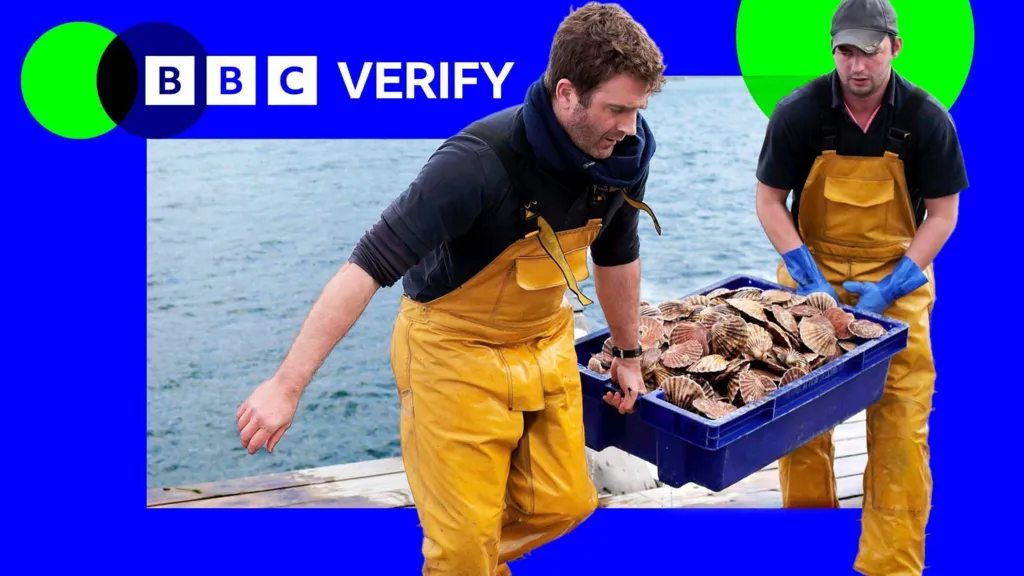A deal to "reset" relations between the UK and the EU following Brexit has been agreed at a summit in London.
The agreement covers a range of issues, including defence, fishing, the trade in food products and the ability of young people to move freely between the UK and the EU.
BBC Verify has gone through the deal, picking out the potential winners and losers.
Food
Winner: UK food exporters to the EU who could see fewer checks
Loser: People who don't want the UK to follow EU rules, as there are strings attached
Since Brexit, UK goods travelling to the EU – including food products – have faced new checks and extra paperwork.
Some items, such as UK exports of raw burgers and sausages, have been banned from entering the EU because they do not meet its strict import rules.
UK food exports to the EU have fallen – with volumes in 2024 down 34% compared with 2019 – and the industry blames this partly on the added red tape.
Now, both sides have agreed to work on a joint food safety agreement that could remove many of the current barriers.
If signed and fully implemented, it would reduce paperwork, ease checks, and could even lift bans on products like raw meats.
Food and drink exports to the EU in 2023 were worth £14bn, accounting for 57% of all the sector's overseas sales.
But the deal comes with conditions. The UK will need to follow future EU food standards – a system known as "dynamic alignment" – and accept that the European Court of Justice will have the final say in any disputes in this area.
The UK will also have to make a financial contribution. However it is currently unknown how much this will be and when it will be required.
Fishing
Winner: The EU – fishing vessels get 12 more years of access to UK waters
Loser: UK fishermen who wanted annual negotiations on fishing access
Although fishing accounts for a very small part of the UK economy – just 0.04% of GDP in 2024 – it is politically sensitive.
The "reset" document notes "political agreements leading to full reciprocal access to waters to fish until 30 June 2038" – a 12-year extension to the current deal negotiated by Boris Johnson's Conservative government – and much longer than expected.
Under the existing agreement (due to expire in 2026), EU vessels get access to UK waters to fish – in return for transferring 25% of their fishing quota – the amount they are allowed to catch – to UK fleets.


